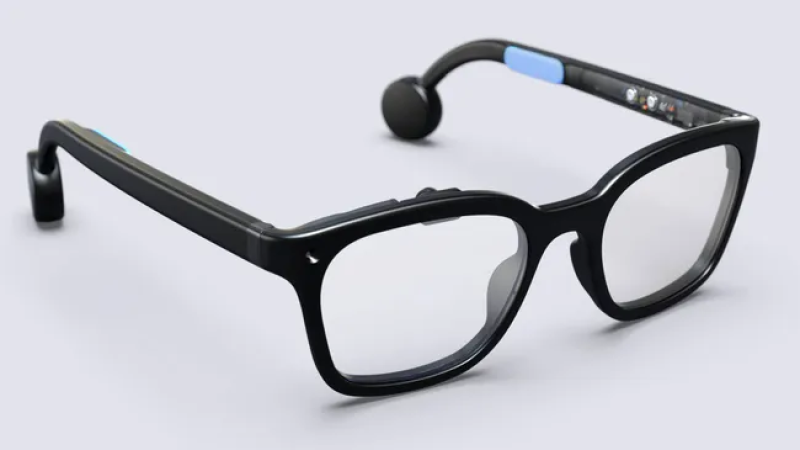Singapore-based startup Brilliant Labs has unveiled Halo, a new generation of smart glasses designed to help users recall names and enhance everyday memory tasks through AI-powered support. Priced at $299, the Halo glasses build upon the company’s earlier Frame model, adding a feature-rich upgrade with real-world applications for memory and vision assistance.
What sets Halo apart is its Narrative system, a newly integrated AI framework that leverages data from embedded cameras, microphones, and user interactions to create a personalised knowledge base. This enables the glasses to identify people in real time, recall names, and offer contextual information based on previous encounters—all displayed through the lens interface.
Halo aims to offer relief to those with memory difficulties or visual impairments, functioning as both a cognitive assistant and a wearable display. It’s also designed with general users in mind, offering features that blend social utility with everyday convenience. From remembering names at networking events to retrieving meeting details or reminders, Halo presents a potential paradigm shift in wearable tech.
Brilliant Labs’ founder and CEO, Bobak Tavangar, says the product reflects a growing demand for AI-enhanced personal tools that can integrate seamlessly with human memory. “We believe in giving users cognitive superpowers,” he said in a launch statement. “With Halo, your glasses don’t just show you the world—they help you make sense of it.”
Unlike more entertainment-driven products such as Meta’s Ray-Ban Stories or Apple’s Vision Pro, Halo focuses primarily on function over flash. At a relatively affordable $299, it offers a lightweight, open-source alternative with high versatility, aiming to democratise access to smart eyewear beyond premium tech adopters.
The Narrative system works by processing data through on-device computing and secure cloud support, allowing users to opt in to features while maintaining control over their personal data. When a user meets someone new, the glasses discreetly capture visual and audio cues, tagging the individual’s name and details. On future encounters, the glasses can prompt the wearer with that person’s name and related information via an unobtrusive visual overlay.
Brilliant Labs also emphasized its commitment to transparency and user agency. Since the Halo glasses are open-source, developers can build additional applications, while privacy-conscious users can examine and adjust how their data is used.
While the concept of smart glasses is not new, products in the space have often struggled to balance utility, privacy, and comfort. With Halo, Brilliant Labs appears to have struck a delicate balance—prioritising helpful features without overwhelming users with extraneous functions.
With its international launch expected later this year, the company hopes Halo will appeal to a broad demographic: students, professionals, the elderly, and those with mild cognitive challenges. As artificial intelligence continues to integrate into everyday life, Halo may mark a new chapter in how humans interact with wearable devices—not just to see, but to remember.

